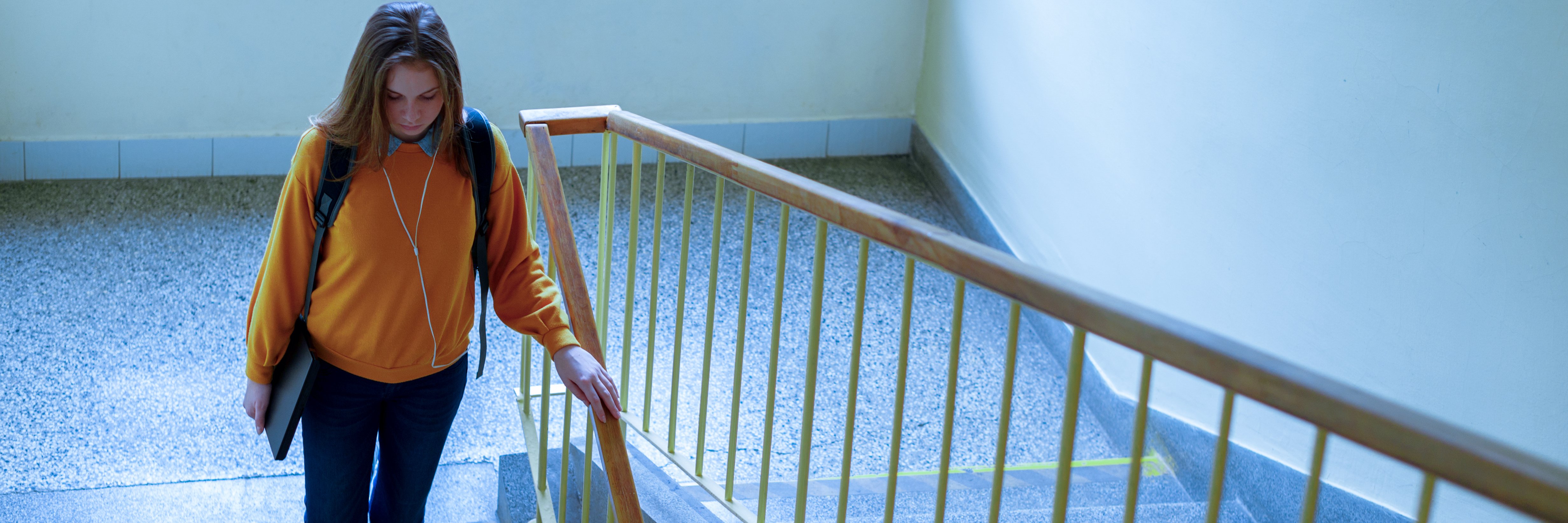Tackling Back to School Anxiety
by Clare Parkin on Sep 5, 2022

Hands up who felt anxious when it was time to go back to school following the summer break? Yeah, me too… The worries could vary from which class I was going into; to who I would walk to school with on the first day back to school. This might sound so trivial now, but back then these concerns could keep me awake for hours.
What causes back to school anxiety?
For many children, returning to school after the long summer break is a walk in the park, but for others, it can trigger huge bouts of anxiety and stress. Supporting your child through these sorts of feelings can feel like a huge challenge. Parents often feel that they simply want to fix the problem, but how realistic is this? Maybe you have said things like, “Try not to think about it!” or “Don’t be silly, you love school.”
The thing about anxiety is that often it is just like the school bully… the more they “try not to think about it” the more the bully wants to plague their thoughts, often leaving the child feeling like they can’t escape the torment.
How can you help with back to school anxiety?
 Carl Jung says “what we resist, persists”. Avoidance might seem like a good way to tackle the child's anxiety, but is this realistic? This might seem like a strange concept, but if a parent can provide a safe place to explore their child's thoughts and feelings, (resisting the temptation to attempt to fix them) usually, the child will find their own coping mechanisms.
Carl Jung says “what we resist, persists”. Avoidance might seem like a good way to tackle the child's anxiety, but is this realistic? This might seem like a strange concept, but if a parent can provide a safe place to explore their child's thoughts and feelings, (resisting the temptation to attempt to fix them) usually, the child will find their own coping mechanisms.
I guess the next question would be, “how do I do this?” You can help your child to process their feelings by providing them with a safe place to just listen. It is important that when doing this, you do not interrupt them. Talking about their thoughts and feelings can make them feel very vulnerable, which is an emotion that they might not feel comfortable with. You can also make them feel more at ease by stopping what you are doing; if you have other children, maybe arrange for someone else to look after them while you have this conversation. Let your child feel that they are being really heard.
While your child is explaining their feelings, it is a good idea to not interrupt them. Also, check your understanding of what they are saying by paraphrasing what you hear. This will give them the opportunity to either correct you or to agree. Try where possible to ask them open questions, coming from a place of empathy; for example. “that sounds difficult, how does that feel for you?” However tempting, try not to promise that all will be okay, we don’t have a crystal ball and as much as we would like their return to school to be seamless, there is a chance that it might not.
Routine is the nemesis of back to school anxiety!
The summer holidays can often afford you and your child the luxury of not having to keep to a routine. However, now is an excellent time to start thinking about about giving your child a structure to their day. It's proven that a lack of structure and routine can actually exacerbate any feelings of distress and make them pay more attention to the source of their problems. “If children don't have structure and are sitting around with less to focus on, then they also probably will find themselves thinking about the stressful situation more, which can also lead to additional stress and anxiety." (Rachel Goldman, PhD.)
Your child's routine doesn’t have to be too ridged, it could be that you make a start by trying to keep meal times to the same time each day. Then get back on board with your child's bedtime routine. When they have a routine, it stops their brain from searching for the next thing, it can also provide them with a feeling of emotional safety. Another tip would be to look at what you have to do the following day, even if this is, entertaining themselves for an hour, house hold chores or shopping. Then put the day into an order, maybe even write it on a piece of paper or a chalk board if you have one. This concept will be familiar to them, as it is often how a school day can work.
Supporting back to school anxiety when all else fails
 Sometimes, having difficult conversations with our children can be… well just that, too difficult. It can also feel as difficult for the child too. If you think that your child would benefit from some sessions with a counsellor, please feel free to reach out to our team here at Mable. We have a large team of experienced therapists who can provide your child with a safe place to talk through their problems and where appropriate, offer strategies to help them to problem solve. In addition to this, you could also consider family therapy; this is where you can discuss their issues in a controlled way, using your family therapist to facilitate an impartial point of view.
Sometimes, having difficult conversations with our children can be… well just that, too difficult. It can also feel as difficult for the child too. If you think that your child would benefit from some sessions with a counsellor, please feel free to reach out to our team here at Mable. We have a large team of experienced therapists who can provide your child with a safe place to talk through their problems and where appropriate, offer strategies to help them to problem solve. In addition to this, you could also consider family therapy; this is where you can discuss their issues in a controlled way, using your family therapist to facilitate an impartial point of view.
- General mental health (35)
- General Speech & Language (32)
- School Issues (26)
- Counselling (24)
- Primary Schools (24)
- Classroom Behaviour (23)
- Anxiety (22)
- Speech and Language Therapy (22)
- Absenteeism (20)
- SENCOs (20)
- Safeguarding (17)
- Secondary & Sixth Form Schools (16)
- Social Communication (16)
- Funding (14)
- MATs (14)
- Generalised anxiety (13)
- Autism Support (10)
- Language Delay/Disorder (10)
- Relationship Issues (10)
- SEMH (10)
- ADHD Support (7)
- Speech Sounds (7)
- AAC (6)
- Autism (5)
- Hearing Impairment (5)
- Depression (4)
- Selective Mutism (4)
- Anger (3)
- Cleft Lip/Palate (3)
- Downs Syndrome (2)
- Ofsted (2)
- Phobias (2)
- Stammering (2)
- Loss (1)
- Self-Harm (1)
- Suicidal Thoughts (1)
You may also like
These related stories

Supporting Exam Stress

How to help a child overcome social anxiety
